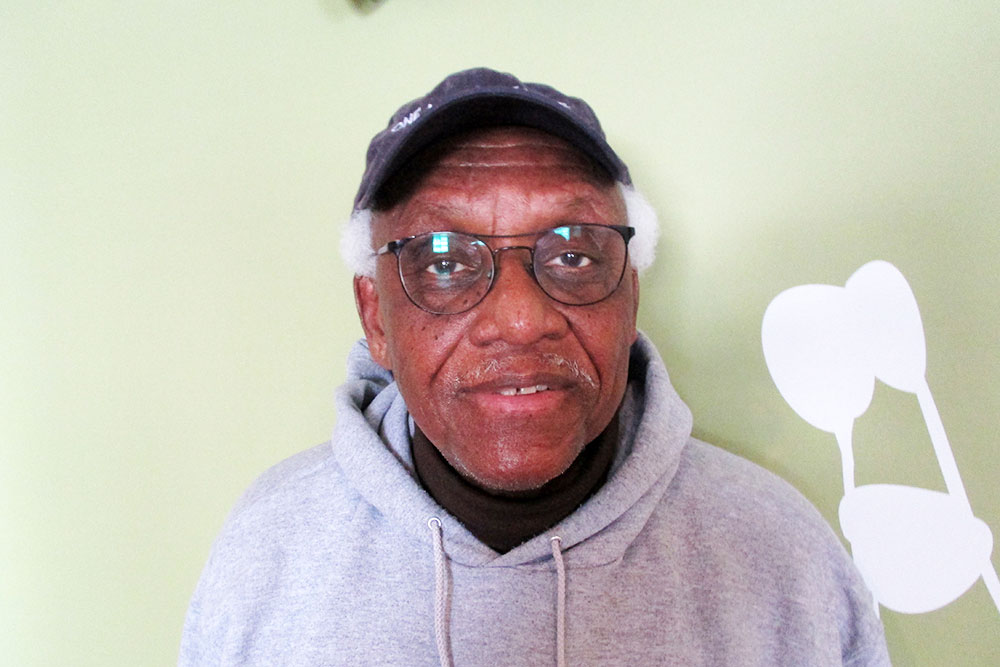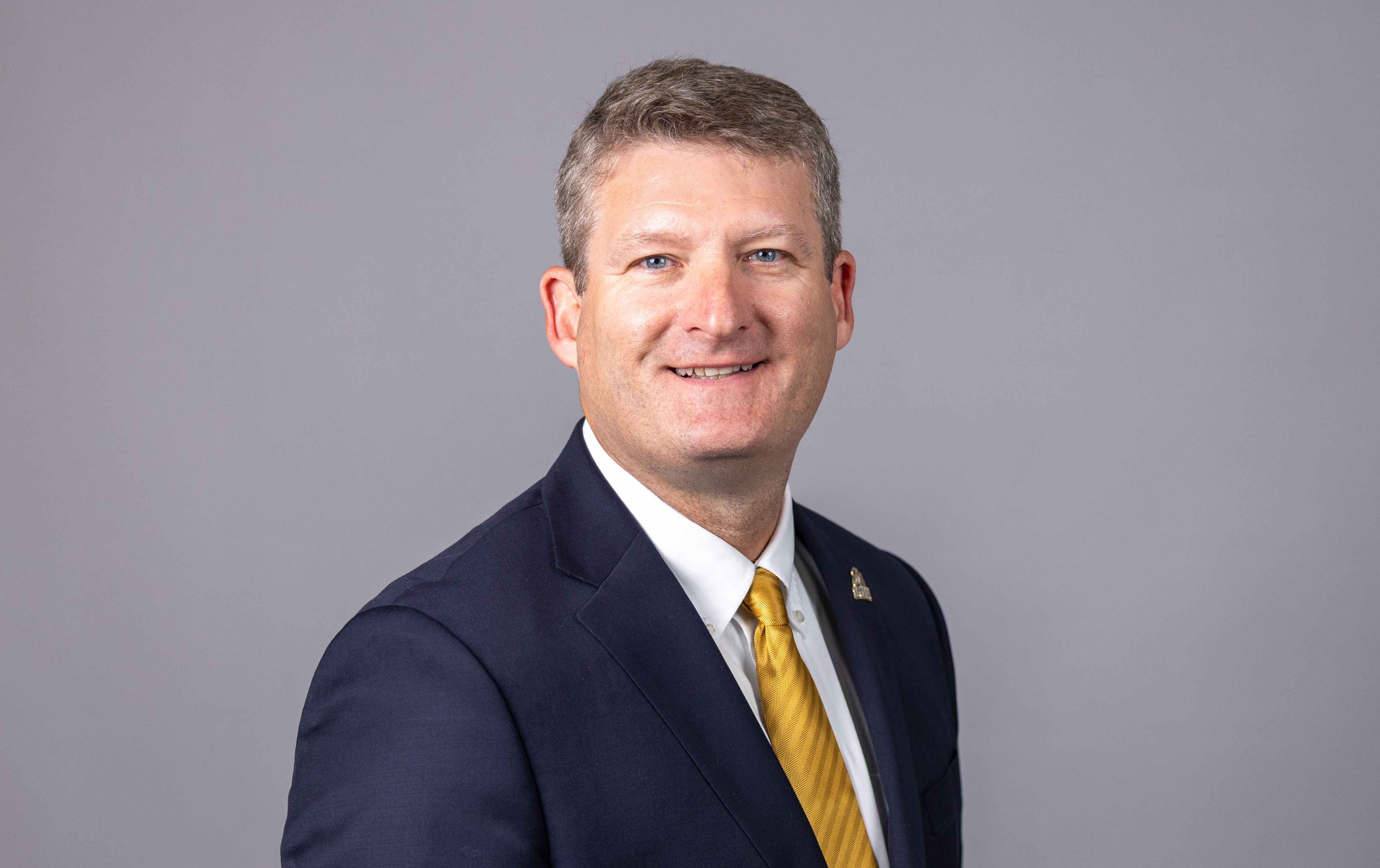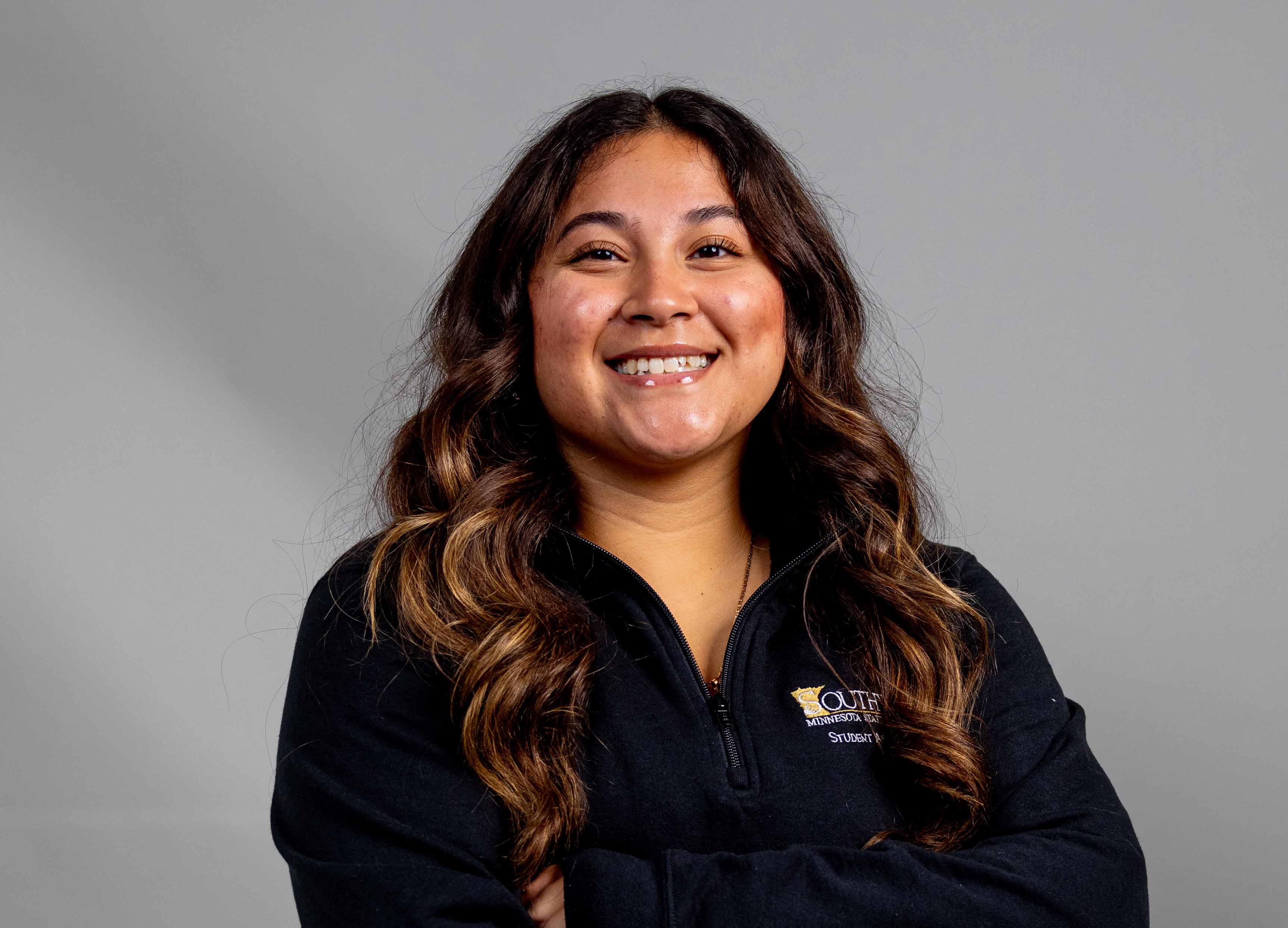McLemore: King Had Plenty of Foot Soldiers Helping Along the Way
Published Friday, January 24, 2020
Leslie-Burl McLemore was relaxed in the hotel lobby. He had on a gray sweatshirt from one of his alma maters, and a baseball cap, which said “One Man One Vote.”
The Civil Right pioneer had delivered an inspiring Martin Luther King Day address the previous evening in front of a full house in Charter Hall 201, and he was worried about the increasing winds getting in the way of his trip to the Minneapolis airport.
McLemore is a good friend of History Professor Dr. Jeff Kolnick, who arranged for his visit to campus. The two joined together with several others to form the Fannie Lou Hamer National Institute on Citizenship and Democracy 23 years ago. The institute accepts 25 participants each summer for a five-week study to promote positive social change by examining the tools and experience of those who struggled to create, expand the sustain civil rights, social justice and citizenship.
McLemore’s talk the prior evening had been about Dr. King, about service, the importance of voting, and about Hamer and Winson Hudson.
“I talked about (Hamer and Hudson) because on Martin Luther King day, we should remember him, but also remember some of the people who worked with Dr. King — the foot soldiers.”
Hudson attempted to register to vote back in 1937 in Mississippi. “You have to remember. That was in 1937. In Mississippi. In Mississippi,” he said, adding an emphasis. “It was oppressive Mississippi, and to think that a young, black woman would go to the courthouse and attempt to register to vote was highly unusual. She could have gotten shot.”
Hamer was 44 years old when she became active in the Civil Rights movement. She had worked on a plantation for 20 years but, when she tried to register to vote in 1962, “the owner came to her home that night and told her she had to go back to the courthouse the next day and take her name off the books,” said McLemore. “She told him, ‘I didn’t register for you, but for me.’ She was forced to take what she could on her back that night and leave.”
“I wanted people to see the difficulty in navigating the system in Mississippi in the ’60s,” said McLemore. “Two women, kindred souls who didn’t know each other at the time, they lived in different counties, who were both courageous. Hudson didn’t share the limelight that Fanny Lou enjoyed, but she was as brave as Mrs. Hamer, and worked longer and harder than Mrs. Hamer.”
McLemore said change has been slow, but steady. “Change didn’t come overnight, there were so many heroes and ‘sheroes’ that we will never know about. When I do have the occasion to talk like I did (at SMSU), I try to bring to the fore one unknown person, to give an idea that these were the kinds of people who were fighting for justice in Mississippi when it wasn’t popular.”
And while he was somewhat subdued in his political assessment of the times the prior evening, he was much less so the following day. “We’ve taken a step back; the water has been poisoned by the rhetoric of Donald Trump. He has exposed cracks in the armor,” he said.
“He has exposed things we thought we had dealt with already. But let me point out that although the exposure is there, without the work of Martin Luther King and Hamer and Hudson, we would not be where we are now.”
McLemore said the Civil Rights movement raised the bar initially, and that early progress is important, especially today. “We are suffering setbacks, but if we had not had the freedom movement, we’d be worse off now, so thank God we had these unsung heroes and ‘sheroes’ who came along and helped change the culture.”
He calls the current environment “a temporary setback, because I believe that there are more things that bring us together as a nation than there are things that separate us. I’m a born optimist.”
At the conclusion of his speech at SMSU, he reference the musician James Brown, “the poet laureate of his time,” said McLemore. “He said, ‘I don’t want nobody to give me nothin’; open up the door and I’ll get it myself.’”
Related Articles
SMSU's Educator Preparation Program Earns National AAQEP Accreditation
Posted on 02-05-2026






